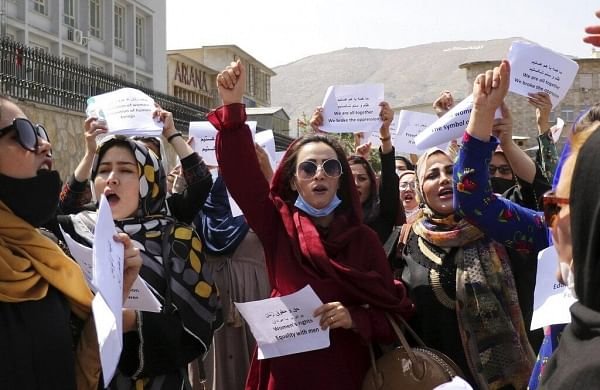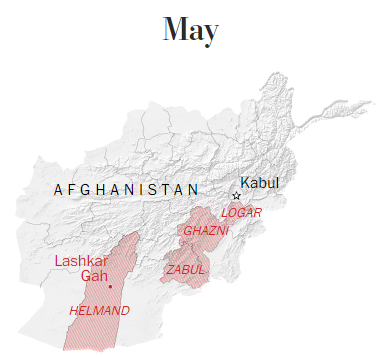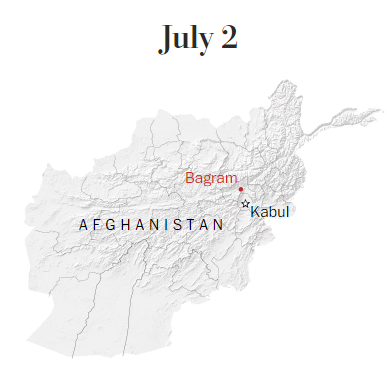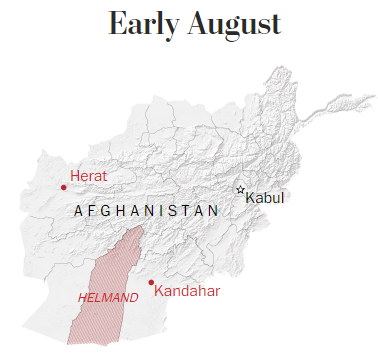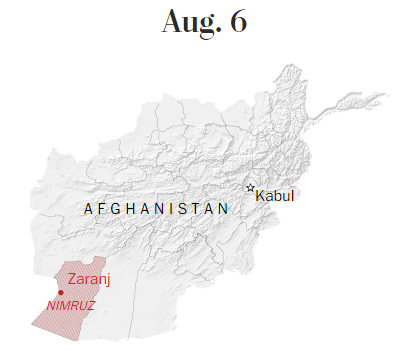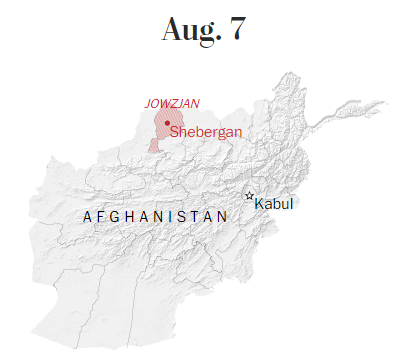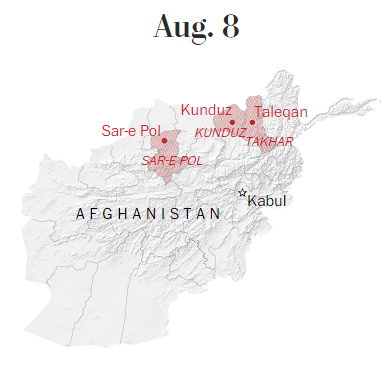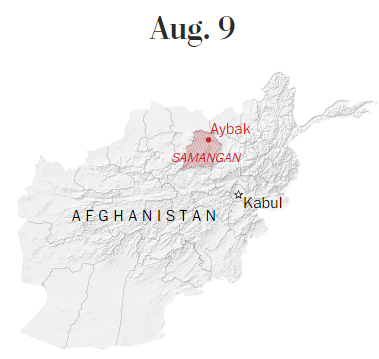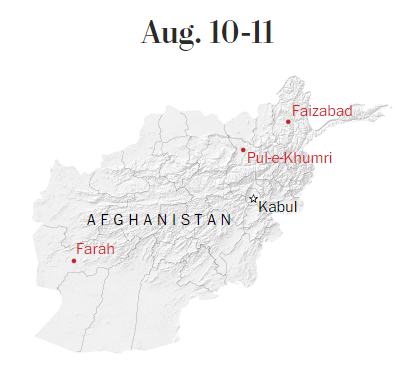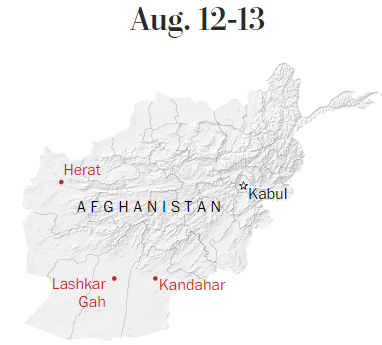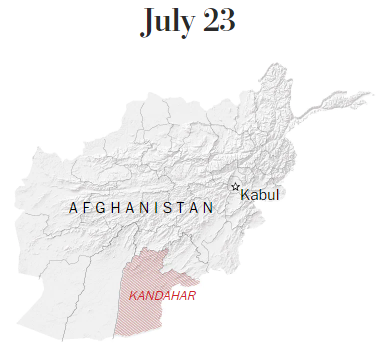The Afghan Women: Twenty Years of Progressive Reforms Under Attack
Since the removal of the Taliban in 2001 by U.S.-led forces, women had been steadily making gains in social and economic equality in Afghanistan. Yet, in the span of merely ten days, the security so hard-won vanished as the Taliban’s extremist forces toppled the Afghan government.
The shocking speed of the Taliban’s advance: A visual timeline - The Washington Post
The Taliban had slowly but steadily been making gains in regional control since the beginning of May 2021 as U.S. troops began withdrawing from the Kandahar Air Base, located in the second-largest city in Afghanistan. In July, U.S. troops departed from Bagram, Afghanistan's largest airbase. Meanwhile, the Taliban slowly worked their way in from the outer regions, eventually reaching the capital, Kabul, on August 15th, 2021. More than twenty years of slow but steady reforms for women’s rights in Afghanistan were degraded by four months of ill-prepared political and military transitions. Now, the Afghan women must face their worst terrors.
Although the Taliban initially promised that women could continue their education and work, the policies implemented within a few weeks spoke in the opposite. Currently, women cannot travel more than 45 miles without a male companion, and they are forbidden to go out without a hijab or head covering. Neither are women allowed to attend school or work without a male guardian, with many being forced to stay entirely at home.
In a survey launched by RIWI, a global data collection firm based in Toronto, Canada, 60% of respondents claimed that women could not continue to work with safety, while another 41% said girls in their region were not allowed to attend school. While the Taliban claims to be in the process of providing a more secure place for girls and women to study and learn, no actions thus far have supported their claims. Instead, the possibility of child marriage is increasing as more and more girls are forced to stay home and delay their education for an unforeseeable period of time.
Furthermore, educational opportunities are not the only restricted sphere. In media and journalism, women are facing increasingly hostile work situations as they are fired or told to strictly cover up by wearing a hijab. In December, the Taliban ministry directed cable television stations to stop casting female actors and stop airing soap operas featuring female actors. Additionally, many female soldiers are running for their lives as new restrictions forbid women from joining the military. Some women, like Jamila (whose name has been changed for safety reasons), continue to move from place to place, striving to remain in hiding to protect themselves and their families. Others have escaped to Pakistan to stay with distant relatives.
“...this time, the message to the Taliban is clear: women refuse to be oppressed once again.”
The ever-increasing restrictions imposed against Afghan women, with little international response, display the uncertainty and terror that these women face, watching two decades of progressing equality slowly diminishing further and further with each new ordinance. Yet, Afghan women are refusing to stay silent.
Sotooda Forotan speaks up for girls’ education.
Many took to the streets in December to fight back against the newest round of ordinances that further restricted movement and work opportunities for women. About thirty women gathered in Kabul to protest the retribution killings carried out by Taliban forces earlier in the year. In October, Sotooda Foratan, a 15-year-old who lives in the Herat Province, spoke out against the closed schools in her region, calling on local officials to think through their decisions and understand the importance of girls’ education.
Despite the Taliban’s increasing attempts to diminish women’s rights, Afghan women continue to fight for equality, refusing to let two decades of hard work wear away to nothing. From girls like Sotooda Forotan, speaking up for education, to the women who protested the retribution killings, this time, the message to the Taliban is clear: women refuse to be oppressed once again.
